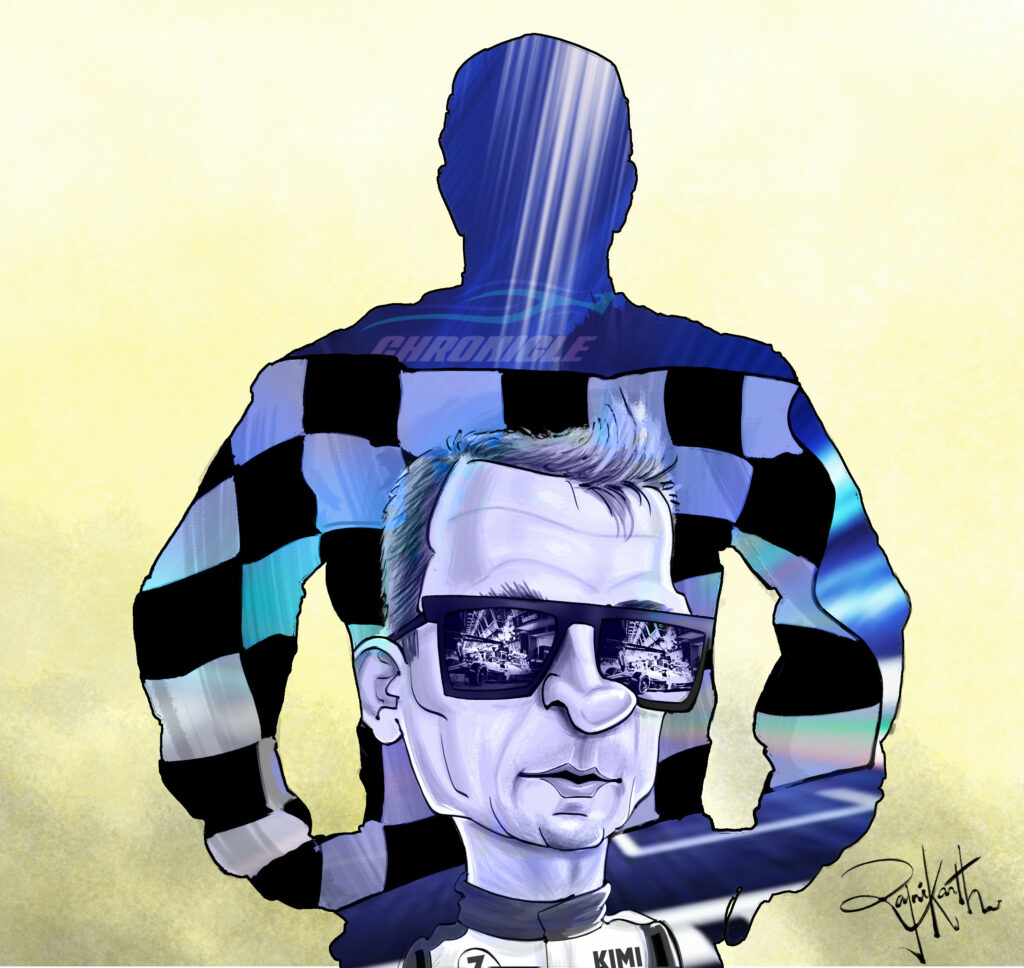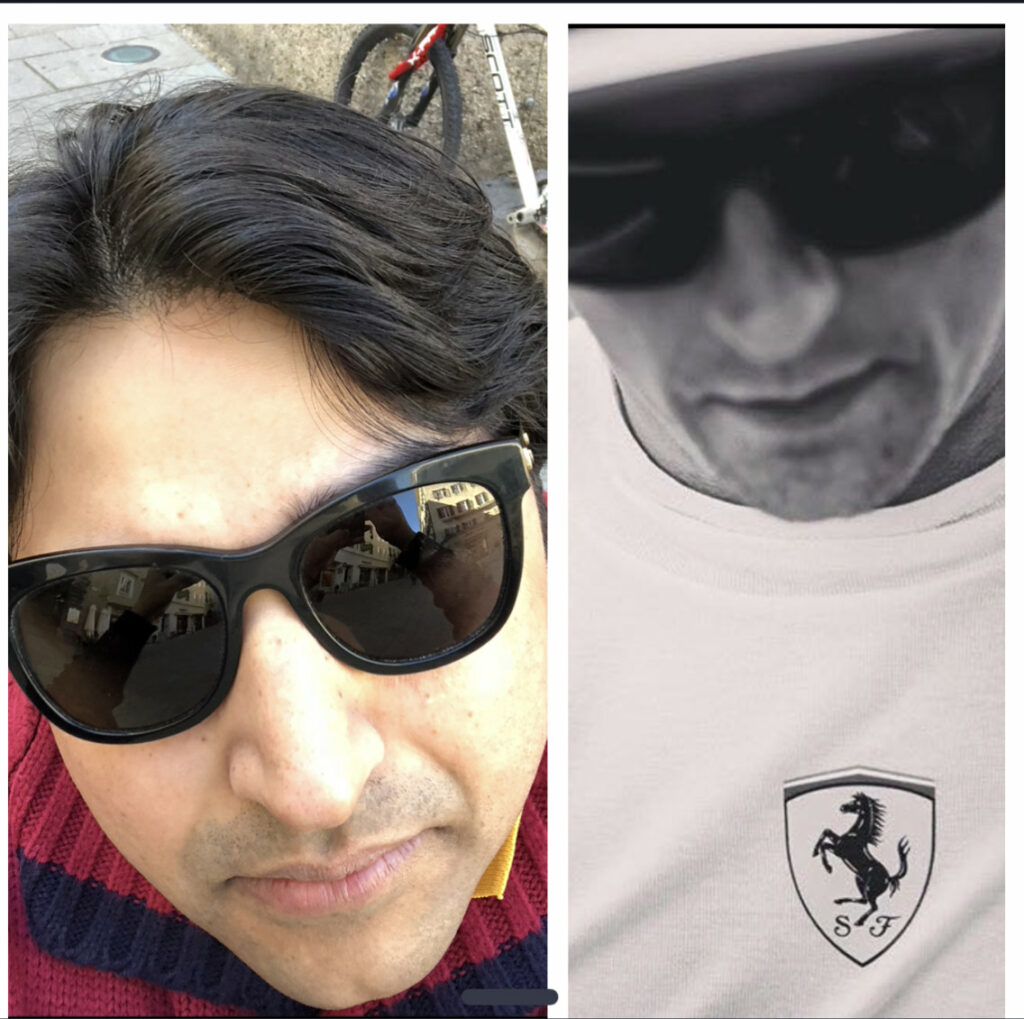Once the heat shield of his McLaren caught fire in the middle of a 2006 race and he was forced to retire. Not that he went to the garage and met his colleagues seeking consolation; he went straight to his yacht that was named rather appropriately, One More Toy.

He was, not according to rumours, but plain facts, absolutely hammered having partied for straight seven days between a Grand Prix and the next. He qualified half a second, half a second faster than a the great Fernando Alonso during the duo’s heydays at Monaco; while the Spaniard was in the racier Renault, he was competing in his blazing McLaren.
Many, to this day, are perhaps caught in surprise when he told Lee McKenzie of all journalists to hurry up during an interview or else he’d bugger off; this was, of course, post denying Lee’s request to remove his glasses during that Lotus stint interview.
He arrived in Formula 1 in 2001, when Yuki, the sport’s next big thing from Japan since Kobayashi, was barely a year old and where the current reigning world champion, Verstappen hadn’t yet entered his double digit years yet.
That’s not the only interesting things about a driver nicknamed the Iceman, which in zero bullshit terms means the guy didn’t give a darn to anything other than racing. Actually, that is what he came to F1 for and that is what he did during his two decade stint in the fastest form of single seater racing.
When asked by none other than David Coulthard in the post-race media interview for the 2012 Abu Dhabi Grand Prix as to what his emotions were upon winning a race in the year of his F1 comeback, the man known for being notoriously monosyllabic said, “Not much, really.” The crowds loved, not derided the reply; what else would they’ve come to expect from a guy who has a name but no time for media shenanigans?
Moreover, throughout different junctures of his career, the most successful driver of our sport, the legendary Lewis Hamilton has admitted to being his fan. Alonso, one of his most ruthless and heartlessly fast adversaries on the track back in the day, admitted that “I would miss him.”
To the German giant Sebastian Vettel, he was a friend. To Michael Schumacher, a serious talent while Bottas and Perez admitted to have followed him when they were growing up.
That’s not to forget, Daniel Ricciardo, who admitted he didn’t understand where he personally stood with him on their equation, expressed he loved his image as the ‘young and fast’ driver during the Aussie’s growing up years. Upon announcing his retirement, Sainz expressed, “F1 would’ve been a lot different without him.”
Meanwhile, Lando Norris believes he’d love to imitate his achievements some day.
Having said that, one of Stirling Moss’s renowned statements with regards to the Formula 1 driver is that, “Quite frankly, he’s one of the fastest the sport has ever seen.”
And yet, the allure of Kimi Raikkonen, 44 today, lies beyond what the rest of the grid- past and current- hold of him. There’s the 21 race wins, the 46 fastest laps, the 103 podiums and the great world title with Ferrari.
Kimi Raikkonen, for whom, stats and hence, the achievements that they led to, were nothing but pure numbers. It wasn’t that, victories didn’t matter to him. The first real time he actually celebrated was when he came first having begun seventeenth on the grid at Suzuka. This was a decade and a half back. The next real occasion where he threw his hands in the air celebrating a world title was when he won the 2007 Brazilian Grand Prix by one single point and doing so, earned Ferrari’s mega world title. It’s been sixteen years since, no one else has been able to fetch glory to Maranello; Kimi, the ice cold, blindingly fast and phlegmatic man, remains the last man to have done so. Not even when he collected several podiums upon his F1 return with Lotus Renault did he make a big deal about it. And maybe that’s the whole lesson about one of the sport’s most intriguing characters; that things didn’t matter to him.
When he won, he won. When he didn’t, he didn’t get affected.
Never the guy who’d jump around and rub his victories on others’ face and never did he drown himself in despair when he failed on the track. He was 38 and no spring chicken when at Monza that year in the 2018 Italian Grand Prix, Kimi Raikkonen created the world record for the fastest record ever set in F1 history: a 1:19:119 at the legendary temple of speed.
On a day where Vettel was expected to curb the Mercedes’ rip roaring pace, it all came down to Kimi’s mercurial talent to put up a fight for Ferrari. As he bagged his 100th podium in the race on Sunday, he emerged next best only to Lewis who was as happy for an idol of the sport as thousands of Tifosi.
Yet, what stood out for countless Raikkonen fans was his sheer unwillingness to “own” the big world record moment when he could have made a big deal of it. They happily declared over team radio that “Kimi, you’re on pole.” The reply, of course, was an utterly plain one: “Thank you!” And that was that. In the race, he came back at Lewis for round #2 to overtake the arguably faster Mercedes car on race day to retake the lead. Resultantly, Monza went wild. Wasn’t a surprise, but on the podium the Iceman waved the Finnish flag. Born at Espoo, moved to England, raced all over the world in a globetrotting adventure before settling in Switzerland, Kimi’s been the stamp of excellence and daring in an extremely competitive sport. Perhaps the great point about his prowess is what he still tend to miss: that the real success of Raikkonen is not about his bank of statistics, but his attitude to racing. In a sport with countless drivers, he’s been a racer.
He didn’t let emotions get to him. He didn’t let rejections dictate the course of driving on the track. In the latter stages of his checkered career, he had clearly lost the game in qualifying. And yet, he didn’t lose heart. He kept trying. A classic case being the 2021 Portimao contest where, lest it is forgotten, the laconic Finn went from sixteenth to sixth inside one grinding mad lap and that too, under rains.
Moreover, he didn’t let the overly emotional moment of his farewell race get to his heart when thanks to a skidding adventure at the coveted 2021 Abu Dhabi Grand Prix, Kimi crashed out thus failing to collect a point in his final hurrah.

Just who wouldn’t have not shed a tear or if not, choked in some emotion? But not Kimi. He was, when he started until his final entry at the Yas Marina corner, his own man; unafraid to lose, unwilling to hype his win. In that absolutely remarkable emotional control lay his triumph and perhaps, the finest lesson for us all: that race hard and then go home and that’s that.
That it’s perfectly possible to remain sane despite having overseen and been a part of a crazy speed fest of an an adventure called Grand Prix F1 racing. For this and more, much love and “Bwoah” to the inimitable Iceman Kimi Raikkonen.
